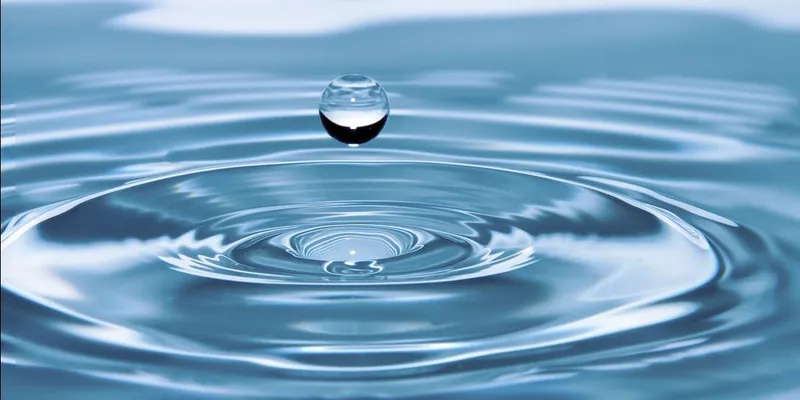

Recycle and reuse: Environmental benefits of water recycling
Water is life. It is a liquid that no living organism can survive in its absence. As the global human population increases so are the demands for water. Therefore, it is our responsibility to recycle the little water we have so that we can meet this requirement.
Water is life. It is a liquid that no living organism can survive in its absence. Water also happens to be essential for our daily operations, since it is a liquid that we use for our intake and daily hygiene. As the global human population increases so are the demands for water. Therefore, it is our responsibility to recycle the little water we have so that we can meet this requirement.

Why Do We Need Water?
Over 80% of your body occurs as a liquid composition. Thus, water is a component that you require for your existence. In its absence, all your internal body processes will fail, and it might lead to your demise. Thus, you should take at least two and a half litters of this precious liquid are recommended for you per given day.
How Much Water Does An Average Household Consume Per Day?
The need for water grows for every household. An average family has three individuals. However, some countries happen to have more members in each house. On average, each home consumes a hundred litters of water per day; a value that might increase based on the sophistication and needs of your house. When you convert the daily consumption into a yearly value, you get highly staggering numbers. A lot of potable water also gets wasted in our homes especially during showering and flushing toilets. However, with the right mindset, a lot can be done to reuse such a vital liquid. Thus, it is proof enough that water is the primary ingredient to our existence.
Other Uses Of Water
Due to advances in technology, water has become a vital element in the manufacturing and production industry. Also, many companies today are powered using electricity sourced directly from hydro-energy. As the need for water grows, it is our duty to find better ways of recycling and reusing the little water on our planet today.
Potential Sources Of Recyclable Water
There are many sources of recyclable water. However, the most common are rainwater, water from industries, flush toilet water systems, kitchen drain water, and bath tub water just to mention but a few.
How To Tap Rainwater
Many of us take rainwater for granted. We fail to see that as a substitute, it can help make our lives better. We all live in homes, some of which have gutter fittings. As much as we value our channels, we lack underground storage tanks that would otherwise be used to tap roof water. With the right incentives, you can construct underground water storage tanks within your compounds so that they can help you trap water from the rain. Since water from rainfall is virtually clean, it can be made use of for cooking and cleaning of your home. With a little treatment, such water can also be drunk straight from your glass.
How To Tap Water From Other Sources
Water from sources like kitchen drains, and bathtubs are ideal for collection at a central location where wastes and effluents are eliminated, treated for any bacteria and then supplied for mass consumption.
Benefits Of Water Recycling
There are many advantages as regard to water recycling. Whereas some happen to be socioeconomic, others are entirely environmental. One of the objectives of recycling water is to boost and protect our environment. As you recycle rain water, you reduce the amount of surface runoff and in the process discourage flash floods. Besides, you harness more water that can be used to irrigate arable land thus reducing human starvation and drought especially in India where temperatures might escalate to unbearable levels with changing seasons.
Besides, recyclable potable water can also be injected into underground aquifers so as to replenish fresh water reserves. In so doing, fresh water underground sources are protected from salinization, meaning that they can are ready for use whenever the amount of surface water is not adequate to satisfy your needs.
As we recycle water, we prevent people from overexploiting the existing fresh water reservoirs. In so doing, we avoid what is known as the depletion of ecosystems, since marine life also relies on water for survival. Recycling also helps reduce the number of toxic wastes getting into our environment. Water recycling is an indirect way of preventing environmental pollution.
Due to water scarcity, many people choose to divert clean water from its source using pipes and powerful pumps. As a result, the amount of water present in these sources dwindles thus making rivers and freshwater lakes extinct. Since recycling of water helps prevents all the above, other marine organisms that provide us with food can thrive.
Through water recycling, we can alter the normal water cycle. As a result, we can create habitable conditions in areas that were once idle and desolate. Recycled water helps you farm dry lands and nurture vegetation thus making such a location an ideal water catchment area. In a country like India, recycled water can be made use of for air conditioning. Human-made dams and reservoirs can be set up near homes and filled with gray water. Large water bodies have been known to reduce environmental temperatures, in particular for the surrounding regions.
Conclusion
As the demand for water grows, so does human knowledge in recycling and reuse of this precious commodity. Presently, more families in India are getting to know how best to make gray water, without compromising on its quality for human consumption. Besides, professionals in the construction industry are educating their clients on the need for surface and underground water storage tanks so that they can harness more rainwater for their home use. The Indian government is now more aware of the need of harnessing surface runoffs. To this end, plans are underway to ensure that urban centres have storm water drains that direct water from the rain to designated collection points. Thus, the future for water recycling and reuse in India proves to be heading in the right direction as public awareness, and political will seems to favour this subject.






